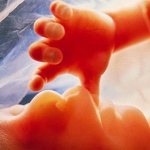Written by Michael Baker
September 14th, 2021—Exaltation of the Holy Cross
This article was originally published on the website Super Flumina Babylonis
Disclaimer: “The opinions expressed in the following article, either by the author or those he quotes in the article, are not necessarily those of Family Life International (Australia) Ltd.”
All civil power, all authority, comes from God, even in a democracy. To govern is to move to their due end those under the care of the one governing as a sailor governs his ship by steering it to port (Summa Theologiae II, q. 102, a. 2). Significantly, the word ‘government’ derives from the Latin noun gubernaculum, meaning a rudder. The duty of one who governs is, then, to guide society, not to dominate its members or interfere in their lives as its modern
exponents delight in doing. A thing’s ultimate perfection consists in the attainment of its end (I, q. 103, a. 1) and the end of government is the common good of those governed.
Society & the Common Good
The common good of society is not named ‘good’ in virtue of some perceived social advantage but in virtue of finality (I-II, q. 90, a. 2, ad 3). In other words, it has to do with man’s end in this present life subordinated to his ultimate end, that for which he was created, union with God in heaven. As an individual, man is imperfect, which is why he needs society and the aid of other men. But as a person man is perfect, an end in himself. Hence society is a means, not an end, as the foolish think. Society exists to enable a man to achieve fulfilment of the end for which he was created and those who govern it may not interfere with, or thwart, that end.
Society and the common good are interwoven. Each is of nature, not of human will. Man is social because God made him that way not because of some ‘social contract’ as they think who repeat the errors of the philosophes of the 18th century. The common good is the increment that accrues naturally on man’s living in society; it is immaterial, a good of order, in which all members of society share; it suffers no diminution in being shared. It is not to be confused with public goods (buildings, roads, infrastructure etc., which serve the public good), or with the public good (government, legislature, judiciary, etc.), which are but instruments to be used to foster and promote it.
The common good has nothing to do with the goods of society’s members taken individually or collectively, their wealth or health, save incidentally. A pauper shares in it equally with one who is well-off; the sick man shares in it equally with the healthy. It is a greater good than that of any individual (II-II, q. 47, a. 10). It is grounded in charity, the chief source of order among men (I, q. 96, a. 4), and in general justice, which has the common good as its proper object (II-II, q. 58, a. 6). To man’s principal end all other ends that arise in society — his continuing existence, happiness in family life, social interaction, peace in work and recreation, his health and wealth—are subordinate.
Modern Society’s Problem
Every society gets the government it deserves. The general body of the citizenry in modern society shares the religious debility and ignorance of ultimate values of those who govern them. If there is no God, no life beyond the present, then one must look for the highest good among earthly goods. This leads modern society’s members to elevate goods which are relative only, personal health and the general health of the community, beyond their station. The Catholic faithful should understand this misconception and resist it because it betrays the
common good and interferes with the personal freedoms of all.[1]
The Corona Virus
The Corona virus has all the characteristics of a plague. It disables those who contract it and it brings death to many, particularly the old and infirm. Like all plagues it is passed by contact and so brings to human association and intercourse burdens which stifle normal activity.
Plagues, and the harm that attend them, have traditionally been regarded by the Catholic Church as a punishment allowed by God for the sinful behaviour of the people. The appalling moral behaviour that characterises modern society makes the sins in which the members of previous civilisations engaged seem relatively innocuous. Put another way, if ever an age deserved a plague it is the present one. Predictably, members of modern society reject any suggestion of divine punishment for their behaviour. Regrettably, their attitude is supported by a calculated silence on the topic by the majority of Catholic bishops, a legacy of the ethos of accommodation with the secular mandated by the Second Vatican Council.
In the absence of the guidance that members of the Catholic episcopacy could, and should, have given to the faithful in their charge—a guidance that must have percolated into modern society generally—faithful and unfaithful alike see no alternative to reliance on practitioners of science and medicine to provide an answer to the demands it poses. The only answer they offer is vaccination. But the vaccines offered present problems.
Vaccination with Vaccines currently offered
The problems include—
- the certainty that they are derived, in their manufacture or in their testing, from cells
taken from aborted foetuses, - the fact that none has had the extensive testing normally prelude to approval for
universal use, - doubts about their long term efficacy which seem to be increasing with the passage of
time, - doubts about their side effects which include the deaths of many who have been
vaccinated, - doubts about whether it is reasonable to accept them when there are active forces
abroad who seem bent on ignoring, if not suppressing, information of the collateral
harm they bring, and - doubts about future long term side effects in the advice given by some doctors that the
vaccines may aggravate, rather than reduce, the effects of the virus.
To Catholics, and to all who understand how critical it is not to contravene the moral law, the
chief of these concerns is the first.[2] In his encyclical on the origin of civil power, Diuturnum Illud (June 29th, 1881) Pope Leo XIII repeats St Thomas’s remarks (at n. 24) on the place of fear in our moral lives:
“From an overmastering fear many fall into despair, and despair drives men to attempt boldly
to gain what they desire…” On the Governance of Rulers I, 10
This sheds light on the motivation of those who urge vaccination with questionable vaccines. It is fear that has driven them to act so precipitately and fear that presses the populace to adopt them. The great concern, one that has been mentioned by the suitably qualified, is that this
precipitancy may result in harm unforeseen in the vaccinated, a harm greater than any that the virus may work. One can envisage how people will turn on those who have urged vaccination if such harm should eventuate.
The Catholic Church’s Position
In Diuturnum Illud Pope Leo says the following about the deference due by man to the civil power of the state:
“There is one reason only why men should not obey and that is when what is demanded of them
is openly repugnant to the natural or the divine law, for it is unlawful to command, as it is to
perform, any act which violates the law of nature or the will of God.” [n. 15]
Because of the moral turpitude involved in the provenance of the vaccines on offer, if for no other reason, the state has no entitlement to exert compulsion on its citizens to undertake vaccination with them. Nor can it be tolerated that compulsion should be imposed by moral means through those in public office inciting the populace to ostracise those who refuse vaccination. The principle binds all, those engaged in critical offices such as priests, doctors,
nurses, health workers, etc., as well those employed in less critical ones, such as bus and taxi drivers. Anyone whom the state or its functionaries seeks to compel to take any of these vaccines is morally entitled to refuse to do so.
It is a matter of immense regret that current members of the Catholic episcopacy, far from highlighting the above principles to faithful and unfaithful alike as correctly reflecting the demands of the moral law, join with those governing in urging vaccination. The bishops’ appeals to rulings issued by Vatican Dicasteries which depart from the Church’s constant teaching against any cooperation with the intrinsic evil of abortion are scandalous, as are their assertions that such defective rulings emanate from the magisterium of the Church. What the bishops impart is not moral principle but ‘the party line’ which reduces to this, that the teachings of the Second Vatican Council reflect the Church’s constant teaching. That so many of them do not do so, but are heretical, is demonstrable.
Division among the Faithful
It is remarkable the division that exists among the Catholic faithful over the acceptability of these vaccines. The division does not follow necessarily the lines of demarcation between those who follow the liturgy of the Mass according to Paul VI (the novus ordo) and those who adhere to the usus antiquior (whether directly under the explicit authorisation provided by Pius V in 1570, or indirectly via that allegedly provided in the Apostolic Letters Ecclesia Dei and Summorum Pontificum, now purportedly abdicated by Pope Francis’s motu proprio Traditionis Custodes). The division is reflected among those of traditional inclination in the contrasting views of historian Roberto de Mattei and theologian Don Pietro Leone.[3] The Society of St Pius X allows there may be excuses for its priests using one or other of the vaccines, while certain of those within the Priestly Fraternity of St Peter oppose them categorically.
The reason for this division is that no authoritative expression of the magisterium of the Catholic Church has been issued so as to bind the faithful irrevocably. The fact is that there is no body capable of performing the task and, it could be argued, there has not been for upwards of 40 years. Neither is there in the present incumbent of the Chair of St Peter one prepared to exercise the Church’s supreme authority for the welfare of the faithful.
Given the documented incompetence of Pope Francis; his utterance of statements which contain material, if not formal, heresy; his refusal to execute the duties of his office by resolving issues put to him formally by certain of his cardinals; his allowing it to be published in the Annuario Pontificio that he is no longer to be considered the Vicar of Christ; and his engagement in an explicitly schismatic act in Traditionis Custodes, this is hardly surprising.[4] What does not so much surprise as beggar belief is the attitude of the Church’s bishops who, when almost everything about the government and direction of the Catholic Church is dysfunctional conduct themselves, like characters in Hans Andersen’s fable The Emperor’s New Clothes, as if all was well.
The Insidious Effects of Vatican II
How is this blindness to be explained? In a paper he gave at the Catholic Identity Conference in the United States on October 24th, 2020, Archbishop Carlo Maria Viganò, former Apostolic Nuncio to the United States, said this:
“For sixty years, we have witnessed the eclipse of the true Church by an anti-church that has progressively appropriated her name, occupied the Roman Curia and her Dicasteries, Dioceses and Parishes, Seminaries and Universities, Convents and Monasteries. The anti-church has usurped her authority, and its ministers wear her sacred garments; it uses her prestige and power to appropriate her treasures, assets, and finances.”[5]
His conclusion from the lessons of recent history of the Church is eminently reasonable. He has elsewhere referred to this entity as the Church’s ‘counterfeit’. Because of the way its exponents are besotted with the resort to democracy promoted by the Council, it seems appropriate to label it ‘the Synodal church of Vatican II’. If its existence be admitted, a ‘church’ operating in parallel with the true Church, which hides its true identity in the Church’s shadow, it is reasonable to argue that when its votaries claim they are exercising the Church’s magisterium they are in fact exercising the Synodal church’s counterfeit of that magisterium. It is this authority to which so many appeal to justify their refusal to follow the Church’s constant teaching against cooperation in moral evil.
Unlike the Synodal church, the Catholic Church is a divine institution. God is its Head, God is its enlivening Spirit, God its reason for existence. If there had existed a body capable of exercising the Church’s magisterium and that body had done so definitively by the time the Corona crisis arose, governments around the world would be on notice that no vaccine which relied in any way on cells stolen from an aborted child was to be regarded by the Catholic faithful as acceptable. The stifling effect on scientists and medical specialists would have altered the focus of their efforts as well as striking a blow against the abortion industry.
Proposed Division of the Populace into the Vaccinated and Unvaccinated
It is argued that it is fitting to inhibit the freedoms of the unvaccinated because they are more likely to contract and transmit the virus than the vaccinated. But facts show that the vaccines’ powers are limited, that the vaccinated can become re-infected,[6] and that vaccination does not prevent them infecting others. Hence, the grounds advanced are uncertain at best. In any event the argument it is easily answered. Since the use of tainted vaccines involves a breach of moral principle, there can be no lawful basis for penalising those who refuse them.
There is another matter: to penalise those who refuse vaccination is to interfere with their freedom of conscience.[7]
If a state was to move to divide the populace by depriving the unvaccinated of the exercise of their human rights, the action would fitly be compared with the treatment accorded the Jews by the Nazis in the 1930s and 40s. But the moral position of those who object to vaccination with tainted vaccines is stronger. For the Jews suffered because they fell foul of Nazi ideology; but the unvaccinated will suffer because they have refused to engage in an immoral act.










